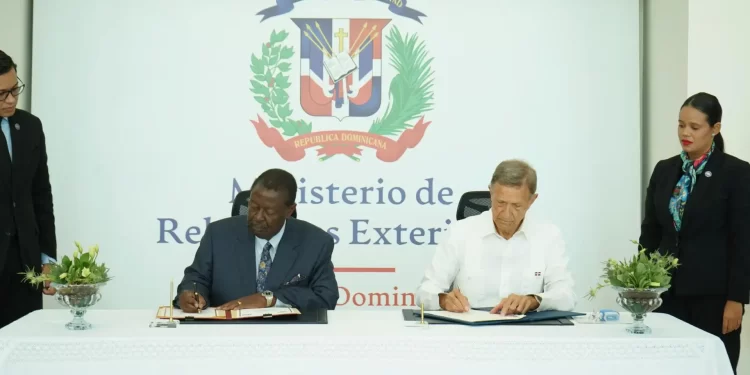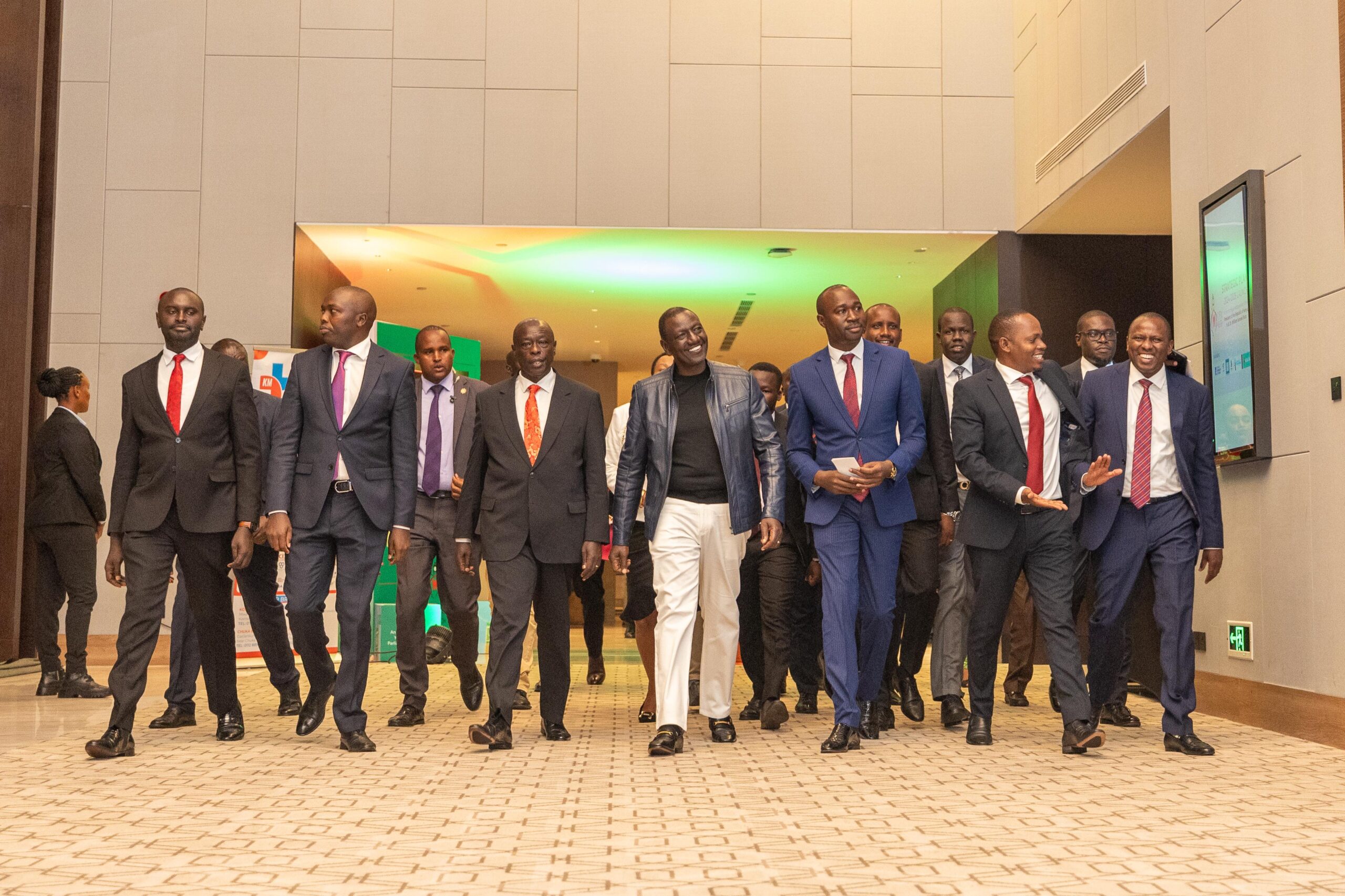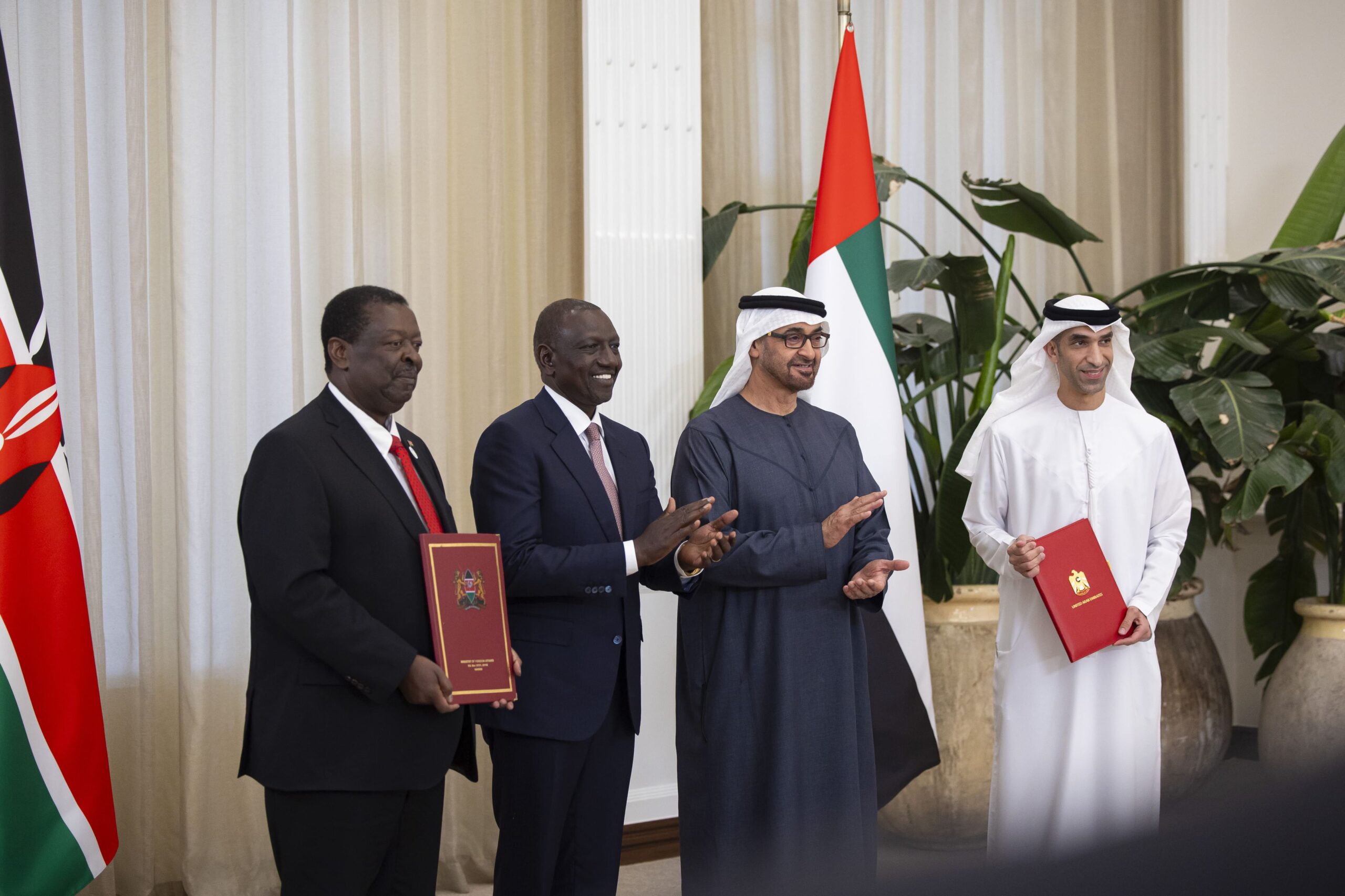Kenya’s leadership in the Multinational Security Support Mission (MSSM) in Haiti has been significantly reinforced through a landmark agreement with the Dominican Republic, marking a pivotal moment in Nairobi’s evolving global peacekeeping profile. The newly signed Memorandum of Understanding (MoU) paves the way for the safe evacuation, medical treatment, repatriation, and dignified handling of remains for Kenyan personnel deployed in Haiti, underlining Kenya’s commitment to safeguarding its forces while contributing meaningfully to international peace and security.
The agreement was signed during the first official political consultations between Kenya and the Dominican Republic, led by Kenya’s Prime Cabinet Secretary and Cabinet Secretary for Foreign and Diaspora Affairs, Musalia Mudavadi, and his host, Foreign Minister Roberto Álvarez. This development follows growing security concerns in Haiti, where criminal gangs have overrun much of the capital and undermined public order, prompting the United Nations Security Council to mandate the MSSM through Resolution 2699 in October 2023.
At the heart of this historic partnership is the comprehensive agreement on medical evacuation and repatriation. The MoU ensures that injured Kenyan officers in Haiti will have immediate access to advanced medical care in the Dominican Republic. For the first time, there is now a formalized and secure route through which wounded personnel can be swiftly transported, treated, and, if necessary, repatriated to Kenya. The agreement also codifies the process for the dignified handling of remains of those who make the ultimate sacrifice while on duty.
This commitment reflects not only logistical foresight but also a deep respect for the wellbeing and morale of the officers deployed in an increasingly volatile environment. As noted by Mudavadi, the pact is “a testament to the Kenya Government’s commitment to supporting the MSS Mission while taking necessary steps, including establishing evacuation protocols, to ensure the safety and wellbeing of Kenya’s personnel in Haiti.”
Foreign Minister Álvarez emphasized the Dominican Republic’s appreciation of Kenya’s role in stabilizing Haiti and highlighted the tangible support already extended. So far, the Dominican Republic has provided medical care to approximately 20 Kenyan MSSM personnel, a gesture that has set a precedent for compassionate regional cooperation. “We are deeply satisfied to have offered respectful, dignified, and compassionate care to these brave men and women who have shown exemplary courage in support of regional security,” Álvarez stated.
This move also signals a profound level of regional solidarity, reinforcing the broader vision of shared responsibility for peace in the Caribbean and beyond.
In a further step toward institutional collaboration, Kenya and the Dominican Republic signed a Memorandum of Understanding on Diplomatic Training. This agreement establishes a framework for cooperation between the Dominican Republic’s Institute of Higher Education in Diplomatic and Consular Training and Kenya’s Foreign Service Academy. The MoU is designed to foster mutual capacity-building, enhance diplomatic professionalism, and nurture a new generation of international affairs practitioners from both nations.
This training partnership is not only a vehicle for deeper engagement but also a platform for sustained cooperation across multilateral platforms, underscoring the strategic value both countries place on international diplomacy and shared learning.
Another important outcome of the bilateral talks is the mutual expression of intent to open embassies in Nairobi and Santo Domingo. This development is set to enhance diplomatic dialogue, streamline consular services, and facilitate faster coordination, especially regarding the MSSM. The decision reflects a strong political will on both sides to deepen their partnership and expand their influence in regional and international affairs.
Amid growing operational challenges faced by the MSSM in Haiti, both leaders used their meeting to call for renewed global support for the mission. They acknowledged the mission’s critical role in restoring law and order in Haiti but noted the persistent gaps in equipment, personnel, and logistical infrastructure. With only 1,000 of the planned 2,500 personnel currently deployed, the mission is under pressure to deliver security in a highly unstable environment where gangs control over 85 percent of Port-au-Prince.
Their joint communiqué called on the international community to honor and increase their financial and logistical pledges to the MSSM. Furthermore, they underscored the urgency of transforming the MSSM into a hybrid mission; a move currently under consideration by the United Nations Security Council which would allow for more flexible and responsive operational capabilities.
Kenya’s involvement in Haiti through the MSSM represents a bold and strategic leap in its global peacekeeping footprint. The new MoU with the Dominican Republic enhances Nairobi’s capacity to deliver security assistance effectively, while also ensuring that the human needs of its personnel are not sidelined. The partnership sends a strong message about Kenya’s preparedness to lead complex international missions responsibly and sustainably.
Moreover, Kenya’s willingness to deploy its police officers in an area far from its borders illustrates a forward-leaning foreign policy rooted in global solidarity, African-Caribbean unity, and a moral responsibility to protect civilians under threat. The Dominican Republic’s collaboration elevates this mission by bridging geographic and logistical divides, showing what effective diplomacy and shared values can achieve.
In an increasingly interconnected world, the ability of nations like Kenya to partner with others outside traditional geopolitical blocs is not only commendable—it is essential. The signing of these agreements represents more than administrative progress; it symbolizes a commitment to principled leadership, international cooperation, and the preservation of human dignity in the face of crisis.
Leaders Caution Gachagua Over Tribal Rhetoric and 2027 Violence Claims. Several national leaders have issued strong warnings to impeached former Deputy President Rigathi Gachagua following his recent inflammatory...
Read moreDetails









